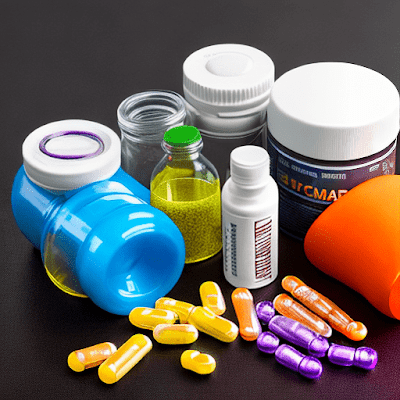Introduction:
Living with diabetes requires consistent monitoring and management of blood sugar levels. This comprehensive guide explores the benefits of incorporating BCAAs, probiotics, and effective glucose management strategies into your daily routine to support overall health and improve your diabetes management experience.
1. BCAAs and Diabetes: Enhancing Muscle Health and Insulin Sensitivity
- Branched-chain amino acids (BCAAs) consist of leucine, isoleucine, and valine, and are essential for maintaining muscle mass and function. For people with diabetes, BCAAs can help reduce muscle breakdown, enhance insulin sensitivity, and promote overall metabolic health.
- BCAAs have been shown to support muscle health by stimulating protein synthesis and reducing protein degradation, leading to improved insulin sensitivity and glucose metabolism.
- To achieve optimal results, choose a high-quality BCAA supplement and consult with your healthcare provider to determine the appropriate dosage based on your individual needs and health goals.
2. Probiotics: Promoting Gut Health and Blood Sugar Control
- Gut health plays a significant role in diabetes management, as an imbalanced gut microbiome can contribute to insulin resistance and poor blood sugar control.
- Probiotics, or beneficial bacteria, help balance the gut microbiome by promoting the growth of healthy bacteria, leading to improved digestion, enhanced immune function, and better blood sugar control.
- To select the right probiotic supplement, look for a product containing multiple strains of beneficial bacteria and consult with your healthcare provider for personalized recommendations based on your specific needs.
3. Glucose Monitoring and Management: Key Strategies for Diabetes Patients
- Regular blood sugar monitoring is crucial for effective diabetes management, as it enables you to track your glucose levels and make necessary adjustments to your diet, medications, and lifestyle.
- HbA1c tests provide a snapshot of your average blood sugar levels over the past three months, allowing you and your healthcare team to assess your long-term blood sugar control and make informed decisions about your treatment plan.
- Implement dietary and lifestyle changes, such as consuming a balanced diet rich in whole foods, practicing portion control, and managing stress, to support healthy glucose levels and overall well-being.
4. The Role of Exercise in Diabetes Management
- Engaging in regular physical activity offers numerous benefits for people with diabetes, including improved insulin sensitivity, better blood sugar control, and reduced risk of diabetes-related complications.
- Work with your healthcare team to develop an exercise regimen tailored to your needs and fitness level, incorporating a mix of cardiovascular activities, resistance training, and flexibility exercises.
- Always monitor your blood sugar levels before, during, and after exercise, and adjust your medication or carbohydrate intake as needed to ensure safe and effective workouts.
5. Additional Supplements for Optimal Diabetes Support
- Supplements like magnesium citrate, MCT oil, and coenzyme Q10 (CoQ10) can provide additional support for individuals with diabetes, promoting optimal blood sugar control, insulin sensitivity, and overall health.
- Choose high-quality supplements from reputable manufacturers, and consult with your healthcare provider to ensure that they align with your specific health needs and goals.
- Collaborate with your healthcare team to develop a personalized supplement plan that complements your existing diabetes management strategies and supports your overall well-being.
Related for Diabeties
- Managing Diabetes with Effective Supplements: Whey Protein, Creatine, and More: Discover how supplements like whey protein, creatine, and vitamins can support diabetes management.
- Overcoming Diabetes: Understanding Type 1 and Type 2 Diabetes and Their Management: Diabetes is a chronic condition, Understanding Type 1 Diabetes, Understanding Type 2 Diabetes, Overcoming Diabetes.
Conclusion:
By incorporating BCAAs, probiotics, and effective glucose management strategies into your daily routine, you can enhance your overall health and improve your diabetes management experience. Always consult with your healthcare team before making significant changes to your diet, exercise, or supplement regimen to ensure safety and effectiveness.





